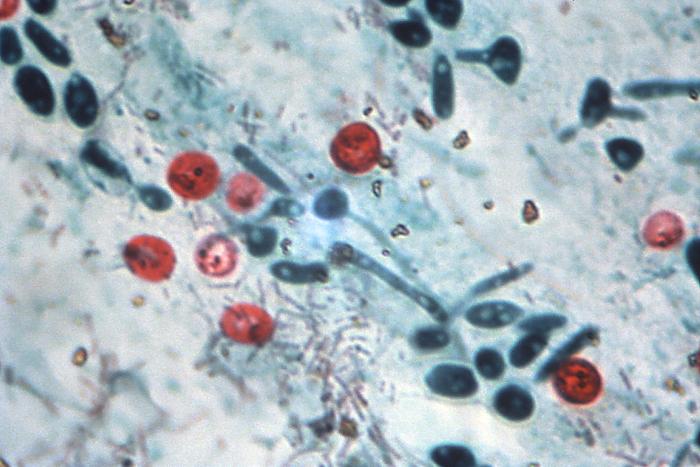A statewide Cryptosporidiosis outbreak in New Mexico is being investigated with links to exposures at a livestock petting zoo at the New Mexico State Fair.
The New Mexico Department of Health (NMDOH) investigation has revealed three patients with laboratory-confirmed Cryptosporidiosis infections and an additional 15 clinically compatible cases, all reportedly exposed to the State Fair.
Cases reside in multiple counties across the state.
The fair was between September 7-17, 2023.

Cryptosporidiosis is caused by a protozoan species (most commonly Cryptosporidium parvum and Cryptosporidium hominis). The most common presenting sign is frequent, non-bloody, watery diarrhea. Other signs and symptoms include abdominal cramps, fatigue, vomiting, anorexia, and weight loss.
The illness is usually self-limiting but can be dangerous to the immunocompromised. The incubation period averages seven days, ranging from 2 to 14 days.
Various animals can act as hosts (e.g. mammals, birds and reptiles) with may outbreaks being linked to the contamination of municipal water supplies and swimming pools as well as the interactions with livestock.
Due to this increase in Cryptosporidiosis cases, NMDOH urges medical providers to consider testing for Cryptosporidiosis in patients with non-bloody, watery diarrhea, particularly those with exposure to the State Fair or exposure to someone who attended the State Fair.
Patients with Cryptosporidium infection should be given instructions to refrain from swimming until two weeks after their symptoms resolve and should not serve food or provide care to vulnerable populations while symptomatic.
Children with Cryptosporidiosis should not attend daycare until their symptoms resolve.



My symptoms of Lyme disease occurred in 2017, but was diagnosed in 2019. I had severe symptoms ranging from headache, fatigue, and a characteristic skin rash called erythema migrans, i had difficulty with my joints, heart, and my nervous system.. I was given medications which helped but only for a short burst of time, then I decided to try alternative measures and began on Lyme Formula treatment from a health care herbal centre, It has made a tremendous difference for me (Visit w w w . healthcareherbalcentre . com)
Hi everyone I am Emily Naomi wanna give a big thanks to this wonderful psychic for bringing my husband back to me… I never really believed in magic spells or anything spiritual but a trusted friend opened my eyes to the truth about life. My marriage was heading to divorce a few months ago. I was so confused and devastated with no clue or help on how to prevent it, till I was introduced to this psychic Priest Ray that did a love spell and broke every spiritual distraction from my marriage. A day later my husband started showing me love and care even better than it used to be, he’s ready to talk things through and find ways for us to stay happy. It’s such a miracle that my marriage can be saved so quickly without stress. You can also contact him for help by email psychicspellshrine@gmail.com or WhatsApp: +12133525735
I was having Herpes Simplex Virus then I came across a review of people testifying how they got cured and got rid of Herpes completely from their body by using Dr Osato herbal medicine. So I contacted him through his email and explained my problem to him. He told me all the things I needed to do and he sent the herbal medicine to me through UPS and he also gave me instructions on how to take the herbal medicine, which I rightly followed. After I finished taking the cure, I went for a checkup and my result was Negative and all the symptoms of herpes were completely gone from my body. If you are down with any of the following diseases/viruses like HERPES-1&2, HIV, HPV, LOW SPERM, DIABETES, CANCER, PENIS ENLARGEMENT or any other disease or ailment I recommend you to contact this great herbalist called Dr Osato he uses natural herbs to cure diseases/viruses. Be rest assured you will surely testify like the way I am doing right now by writing this amazing testimony. You can contact Dr Osato via email: osatoherbalcure@gmail.com or through WhatsApp +2347051705853.
We just love The dr Zubby nature treatment . You are always guaranteed a warm welcome and the best service. His natural treatment is served fresh, and it works very good with in 33 days of using it I text herpes negative . We never leave the products without securing a future booking, as it is our favourite place to get natural products . Thank you again to dr Zubby website,
https://drzubbysolutionhom.wixsite.com/website